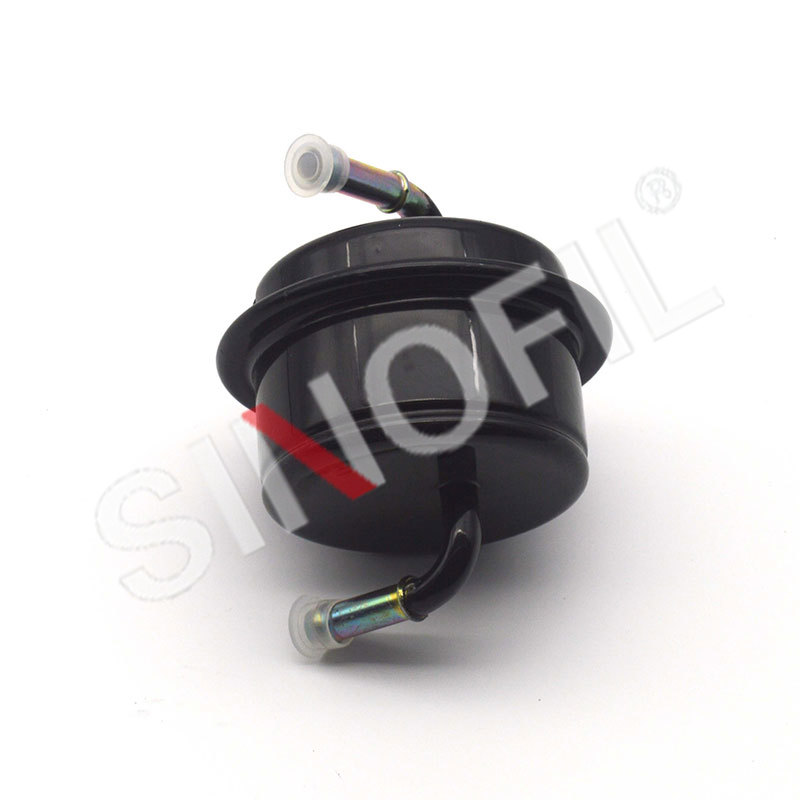Home / News / What are the key design features that ensure a secure, leak-free connection in a fuel filters with connectors?
Ensuring a secure and leak-free connection in fuel filters with connectors is crucial for maintaining the safety, efficiency, and performance of a vehicle’s fuel system. Key design features that contribute to this reliability include:
High-Quality Sealing Mechanisms:O-Rings and Gaskets: High-quality rubber or elastomeric O-rings and gaskets are commonly used to create a tight seal between the filter housing and the connector. These components must be resistant to fuel types (e.g., gasoline, diesel, ethanol blends) and temperatures to prevent leaks.Dual or Multiple Sealing Points: Some designs feature dual or multiple sealing points to provide redundancy, ensuring that if one seal fails, another can maintain a leak-free connection.
Precision-Machined Threads and Fittings:Thread Design: For threaded connectors, precision-machined threads help ensure a tight, secure fit between the filter and the fuel line or adapter. The threads must be cut to precise specifications to prevent cross-threading or incomplete sealing.Self-Locking Threads: Some connectors may have self-locking threads or a locking mechanism that prevents loosening due to vibration or movement during operation.
Quick-Connect or Snap-Fit Systems:Quick-Connect Fittings: These systems use snap-fit or push-to-connect mechanisms that allow for easy installation and removal while maintaining a secure seal. They often include built-in seals that engage automatically when the fitting is connected, ensuring a consistent and leak-free connection.Audible or Tactile Feedback: Quick-connect systems often provide audible clicks or tactile feedback to indicate that the connection is secure, reducing the likelihood of improper installation.

Barbed or Ribbed Connectors:Barbed Design: Connectors with barbed or ribbed designs provide additional grip on the hose, reducing the chance of the hose slipping off under pressure. These designs often require clamps for added security.Reinforced Hose Clamps: Barbed connectors may also be used with reinforced hose clamps that provide extra security and prevent hose detachment.
Robust Material Selection:Corrosion-Resistant Materials: Connectors are typically made from corrosion-resistant materials such as stainless steel, anodized aluminum, or high-quality polymers that can withstand exposure to fuel, moisture, and other environmental factors.Fuel-Resistant Plastics: For plastic connectors, materials such as high-density polyethylene (HDPE), polyoxymethylene (POM), or nylon are commonly used due to their resistance to fuel and environmental degradation.
Proper Tolerance and Fit:Precision Tolerance: Connectors are designed with tight tolerances to ensure an exact fit with corresponding components. This precision reduces the likelihood of misalignment, which could cause leaks.Custom-Fit Options: Some fuel filters offer custom-fit connectors that are designed to perfectly match the dimensions and specifications of specific fuel lines or fuel systems.
Vibration and Pressure Resistance:Reinforced Connections: Design features such as reinforced connectors and thicker walls in the connection area help withstand vibration, pressure fluctuations, and thermal expansion without compromising the seal.Flexible Materials: The use of flexible yet durable materials can accommodate minor movement or shifts without causing a leak.
Chemical Compatibility:Material Compatibility: The materials used for connectors and seals must be compatible with the types of fuel used (e.g., gasoline, diesel, ethanol, biodiesel) to prevent degradation that could lead to leaks.Resistance to Additives: The connectors must also resist any additives present in modern fuels, which could otherwise cause swelling, cracking, or softening of sealing materials.
By incorporating these key design features, fuel filters with connectors can provide secure, reliable, and leak-free connections that ensure the efficient and safe operation of a vehicle's fuel system.



 English
English Español
Español











 ++86 183 3391 1399
++86 183 3391 1399


 +86 183 3391 1399
+86 183 3391 1399
 +86 187 3296 0060
+86 187 3296 0060 Wangshigong Village, Wei County, Xingtai City, Hebei Province, China
Wangshigong Village, Wei County, Xingtai City, Hebei Province, China
